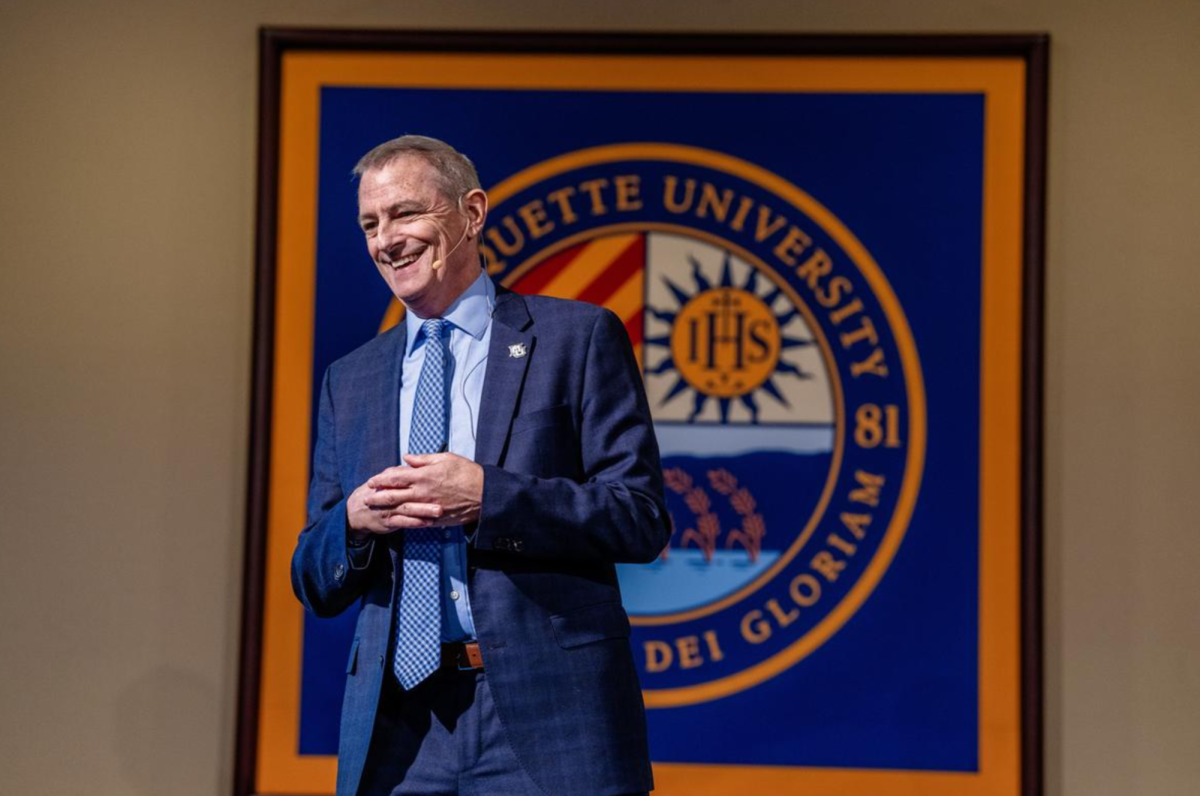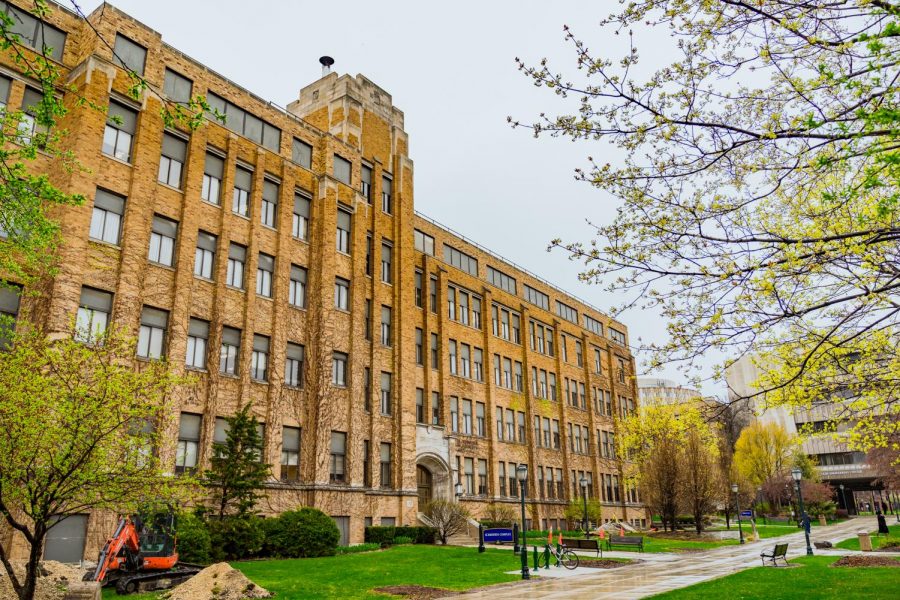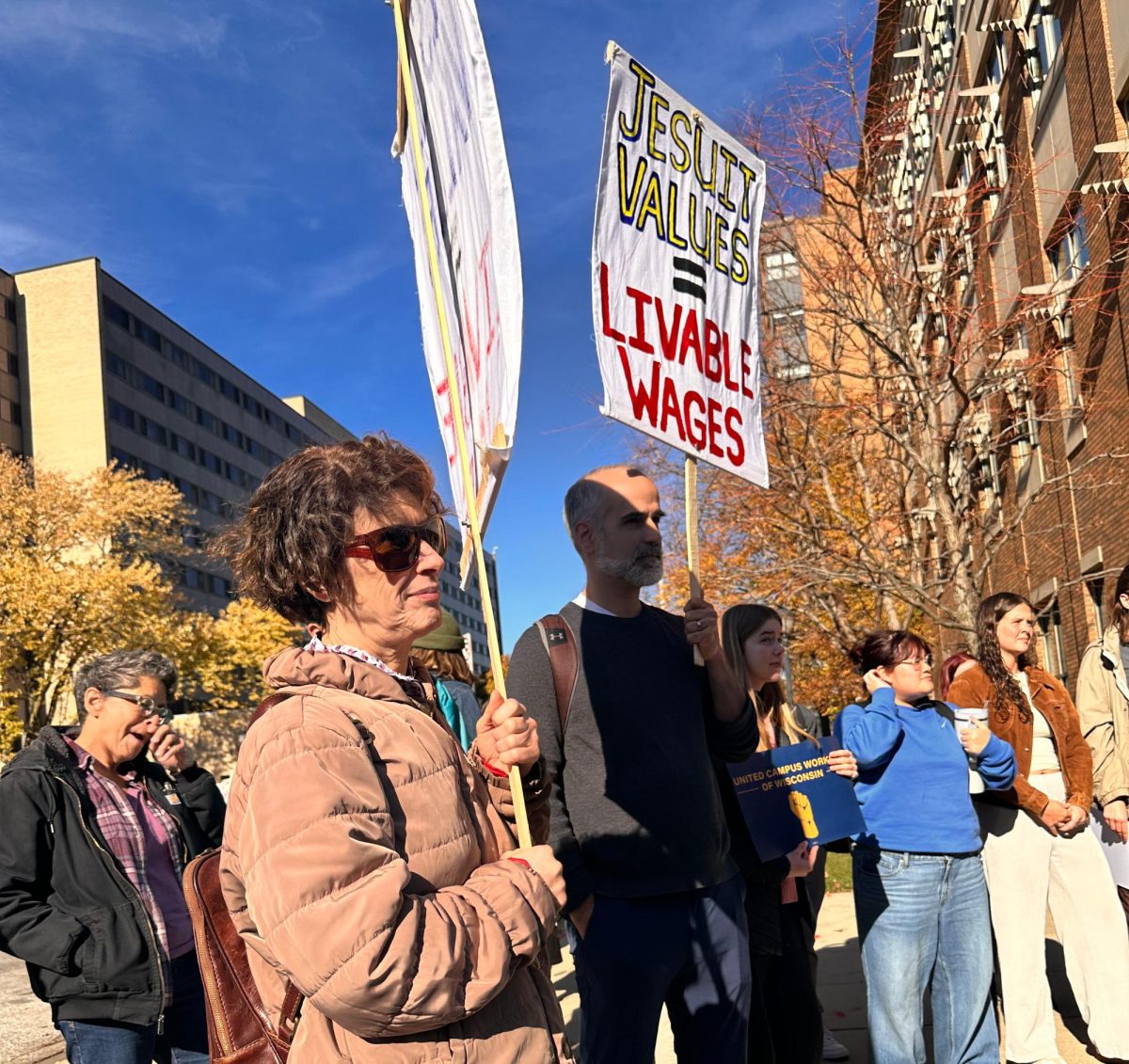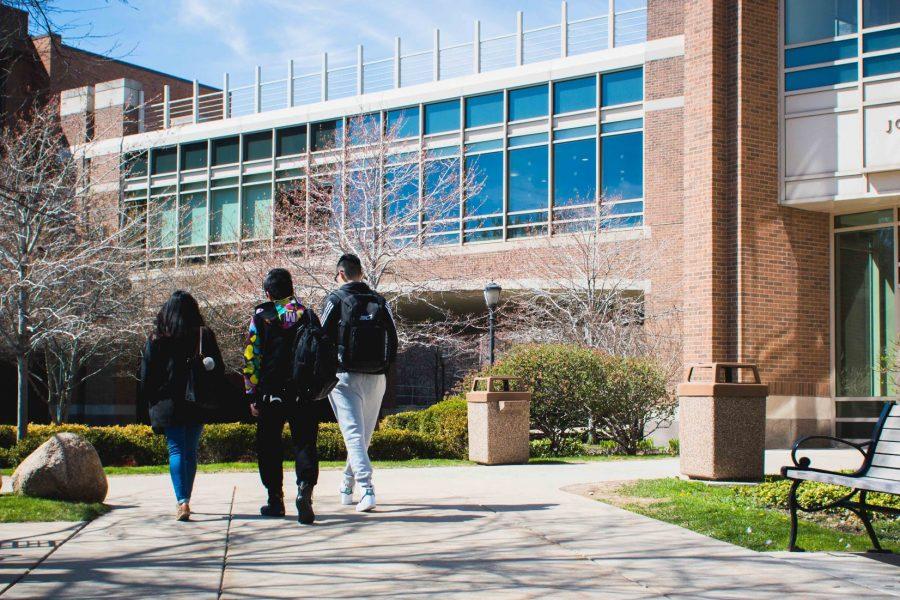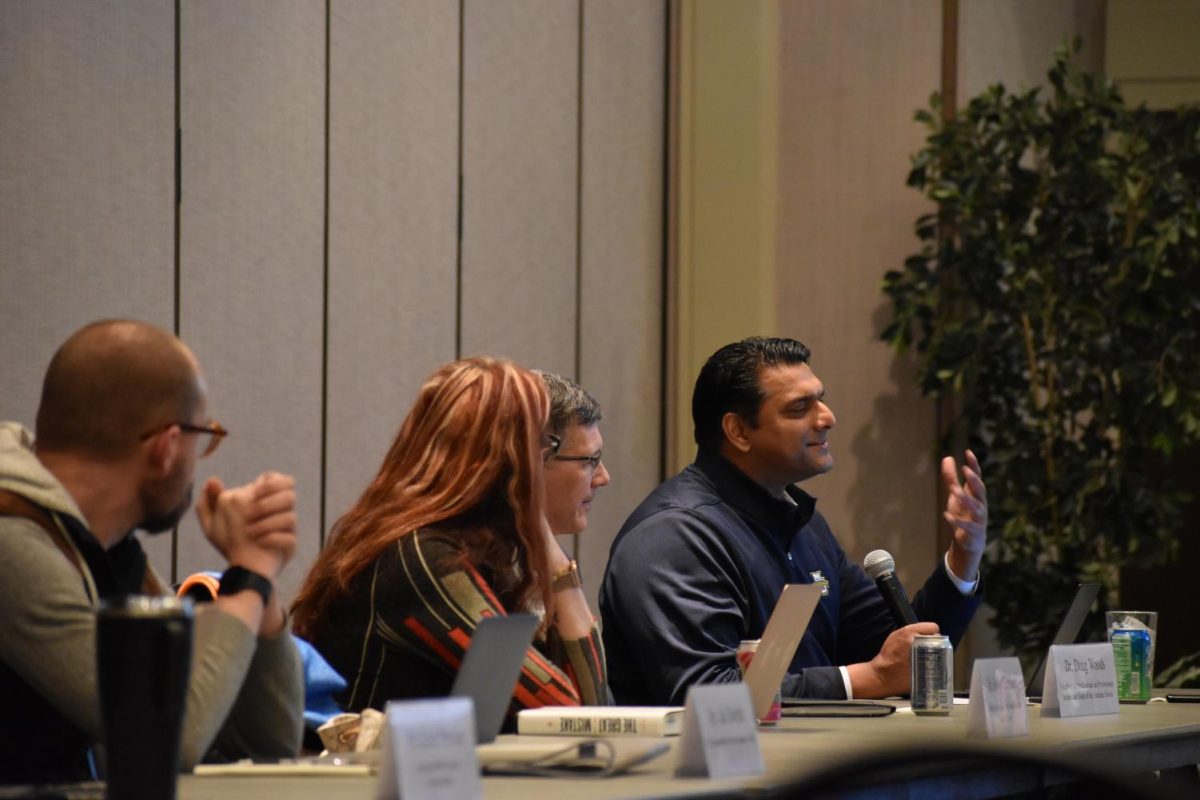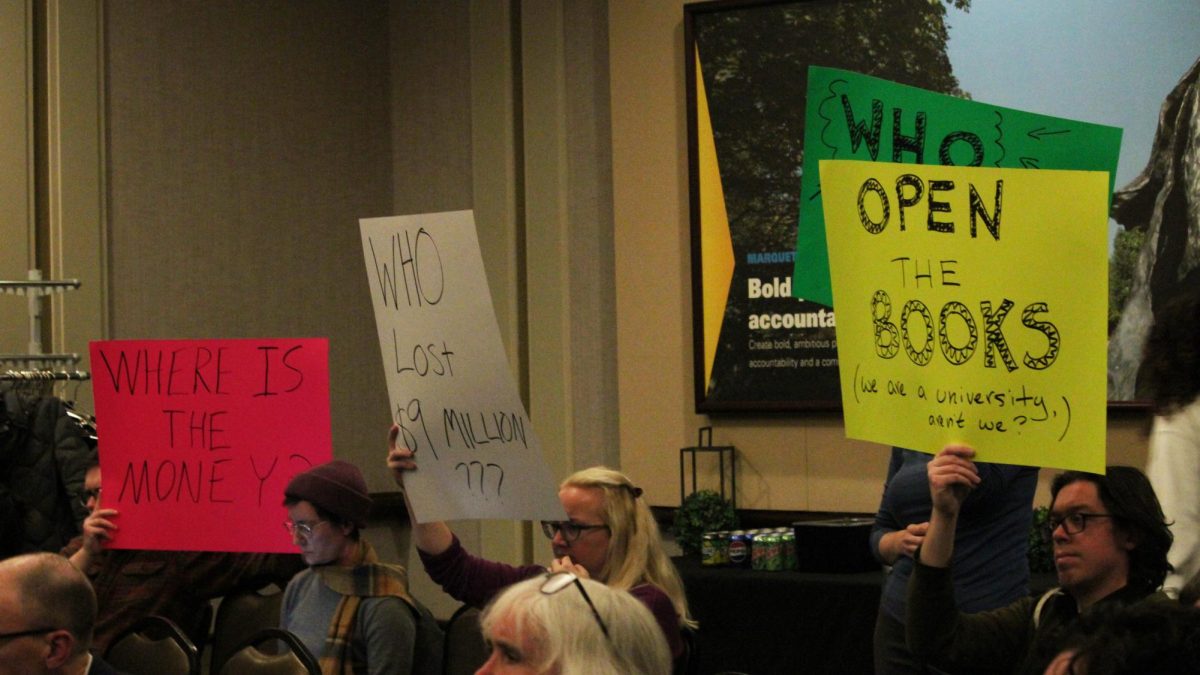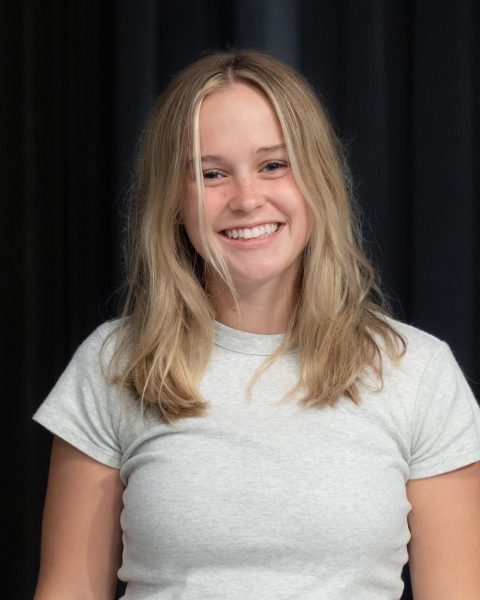University President Michael Lovell addressed University Academic Senate April 15 to address growing concerns about the University’s budget.
Marquette University announced plans to cut the budget by $31 million of its operating budget over the course of six fiscal years, by 2031 in March. In December 2023 University Provost Kimo Ah Yun announced that Marquette was facing a $9.5 million budget shortfall.
A steering committee has been established and is co-chaired by Jill Guttormson, Dean of the College of Nursing and Ralph Weber, acting general counsel to head the effort on the budget reduction.
“I know that all of us are impacted by the uncertainty that lies ahead and not having control is difficult for everybody in this room…I understand that uncertainty brings a wide variety of emotions for all of us, including fear and growing with anxiety and I need to address it,” Lovell said.
Lovell said these uncertainties impact him on a deep level.
“These feelings are natural and I could be completely honest. I often feel that myself. I know most of you don’t always think about what it’s like to be in my shoes, but it certainly weighs heavily on me more than anyone else in the university,” Lovell said.
Although Lovell said these changes impact him, he’s not doing it alone. He points out the UAS faculty and staff that want to be part of the long-term solution.
Lovell mentioned five points he wanted UAS to know.
1. This isn’t something the university has undergone before:
Lovell said he wants the campus to know that the administration has good intentions, despite this being uncharted territory.
“This is especially true for Jill and Ralph in the securing our future steering committee. They are going to do their best to preserve the future of our university,” Lovell said.
2.Working together as a campus community should be a priority:
“We face enough external challenges that we need to find a common ground of our efforts,” Lovell said.” You can and should disagree, but being disrespectful, and fighting with each other will only hurt our long term future.”
3. A road map has already been established for the 2031 strategic plan due to current uncertainty:
“As we’ve been committed to the strategic plan, we continue to focus on our mission: a strong liberal arts education, sense of belonging and research that improves the world,” Lovell said. “These will be tenants, the framework for decisions going forward.”
4. Creating a voice for everyone in upcoming conversations:
“I believe our path is success will be built on developing trust and having conversations where everyone’s voice is included,” Lovell said. “The difficult decisions ahead and the best solutions will be obtained if all possible perspectives and ideas are considered.”
5. Expressed concerns about reoccurring cuts and shortfalls in the future:
“Now this is a fair questions as we’ve just come out of reductions from the pandemic. I’ve experienced budgetary shortfalls in the past few years that need to be closed, but I want to let you know that I’m optimistic that securing our future will be different,” Lovell said.
Lovell points out the conversations UAS and administration have had about the governance process is a step in the right direction.
Lovell thanks UAS chair, Chris Stockdale for having the best interest of UAS in mind. He said even though they don’t always agree, they’ve found ways improve the campus.
“Chris and I agreed that communication with campus on the $9.5 million shortfall this year was not well done and I told him the administration will do its best to improve things going forward,” Lovell said.
Lovell said he also met with the University Faculty Committee on Budgets and Financial Planning. He said the committee was very “candid” with him on the way the University should address shortfalls.
“I believe that I was open to this perspectives and recommendations, and much of their work will be incorporated into our future processes,” Lovell said.
Lovell said during this meeting, UFCBFP said University administration was open to sharing budgetary practices with the committee to create more transparency. Lovell said this theme of openness will continue moving forward.
Lovell details that the steering committee will honor the shared governance process and work directly with academic senate. UAS has representatives in the steering committee, and an open letter from faculty to administration that calls for more representation.
“I believe that the working together will make necessary changes to secure work as future if we will not be back here again in a few years,” Lovell said.
During the Academic Senate meeting, UAS also voted on the eight recommendations that were proposed at the last special Academic Senate meeting. Six of the eight proposed resolutions were passed by the Senate. The other two resolutions will be evaluated at the next meeting.
This story was written by Sophia Tiedge. She can be reached by [email protected]


